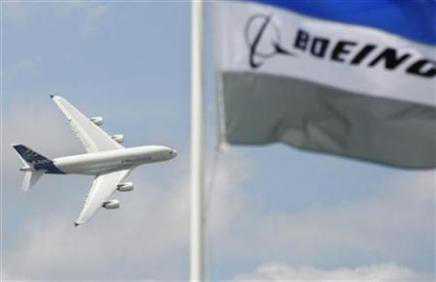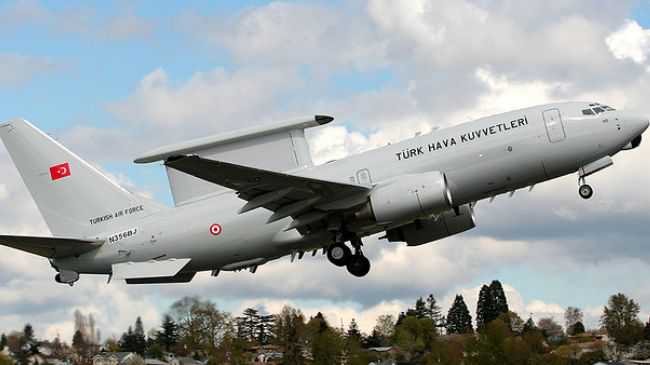ANKARA — Turkey has imposed sanctions on Boeing for major delays in the US company’s spy plane program, a top Turkish official said. But Turkish leaders are not disclosing the penalties, citing commercial secrecy.
Turkish Defense Minister Ismet Yilmaz said major delays in Turkey’s multibillion-dollar program for the purchase of four airborne early warning and control (AEW&C) aircraft from Boeing were due to the company’s failure in developing the system as well as other uncontrolled events within the program.
Under a July 23, 2003, contract, priced at more than US $1.6 billion, Boeing was to develop and deliver four AEW&C aircraft to the Turkish Air Force in 2008. The program involved the delivery of the 737-700 airframe, ground radar and control systems, ground control segments for mission crew training, mission support and maintenance support.
Yilmaz said April 8 that Turkey has paid Boeing only for work completed and has imposed legal sanctions for the delays considered the company’s failure.
“Compensation for the delays and other legal sanctions are being imposed [as part of Boeing’s contractual obligations],” Yilmaz said.
GTC Iletisim Danismanligi, a public relations firm that handles media queries for Boeing in Turkey, referred questions to Turkey’s procurement authorities.
Defense procurement officials said neither Turkey nor Boeing is required to disclose the clauses deemed as “commercial secrecy” in the original contract, including the compensation for delays. The generic compensation in any major Turkish defense contract is 0.03 percent per day, but different contracts can have lower or higher percentages and different rules of application.
“In the case of Boeing’s delays, there has been an agreement as to how the company should compensate for the delays,” a senior procurement official said. He did not say how much or whether the payment would be in cash or in the form of parts and maintenance supplies because “disclosing that would mean a breach of the contract.”
Procurement officials also said that the “force majeure” Yilmaz mentioned in his official explanation essentially referred to delays outside Boeing’s control, such as a now-defunct Israeli blockade of some of the parts in the program.
A clampdown by the Israeli Defense Ministry on the delivery of subsystems for the Turkish AEW&C program was only recently removed. Elta, the Israeli maker of the electronic support measures (ESMs) systems for the 737-700 serial, had since autumn 2011 been lobbying to remove the MoD licensing block preventing the delivery of the systems to Turkey.
Elta is a subcontractor of Boeing in this program and was building the ESMs for four aircraft under a subcontract worth more than $100 million.
The ESM is a passive, purely defensive system that does not enhance the firepower of the Turkish Air Force. The AEW&C system as a whole can be used offensively to direct fighters to their targets or defensively in order to counter attacks by enemy forces in the air and on the ground.
However, defense analysts agree that the ESM is a defensive subsystem.
The Israeli MoD, in December 2011, refused to allow Elta and Elbit, another Israeli company, to complete deliveries of long-range aerial photography systems to the Turkish Air Force.
The clampdown on the Boeing-led program marked the first Israeli government decision to force a US weapons-maker to fail to fulfill its contractual commitments to a third country governmental buyer — and at a time when the program itself faced major delays.
The 737-700 aircraft are to be used as part of Turkey’s NATO capabilities.
An airborne early warning and control system is an airborne radar system designed to detect aircraft, ships and vehicles at long ranges, and to control and command the battle space in an air engagement by directing fighter and attack aircraft strikes. Used at a high altitude, the radars on the aircraft allow the operators to distinguish between friendly and hostile aircraft hundreds of miles away. ■
via Turkey Sanctions Boeing for Delays | Defense News | defensenews.com.



